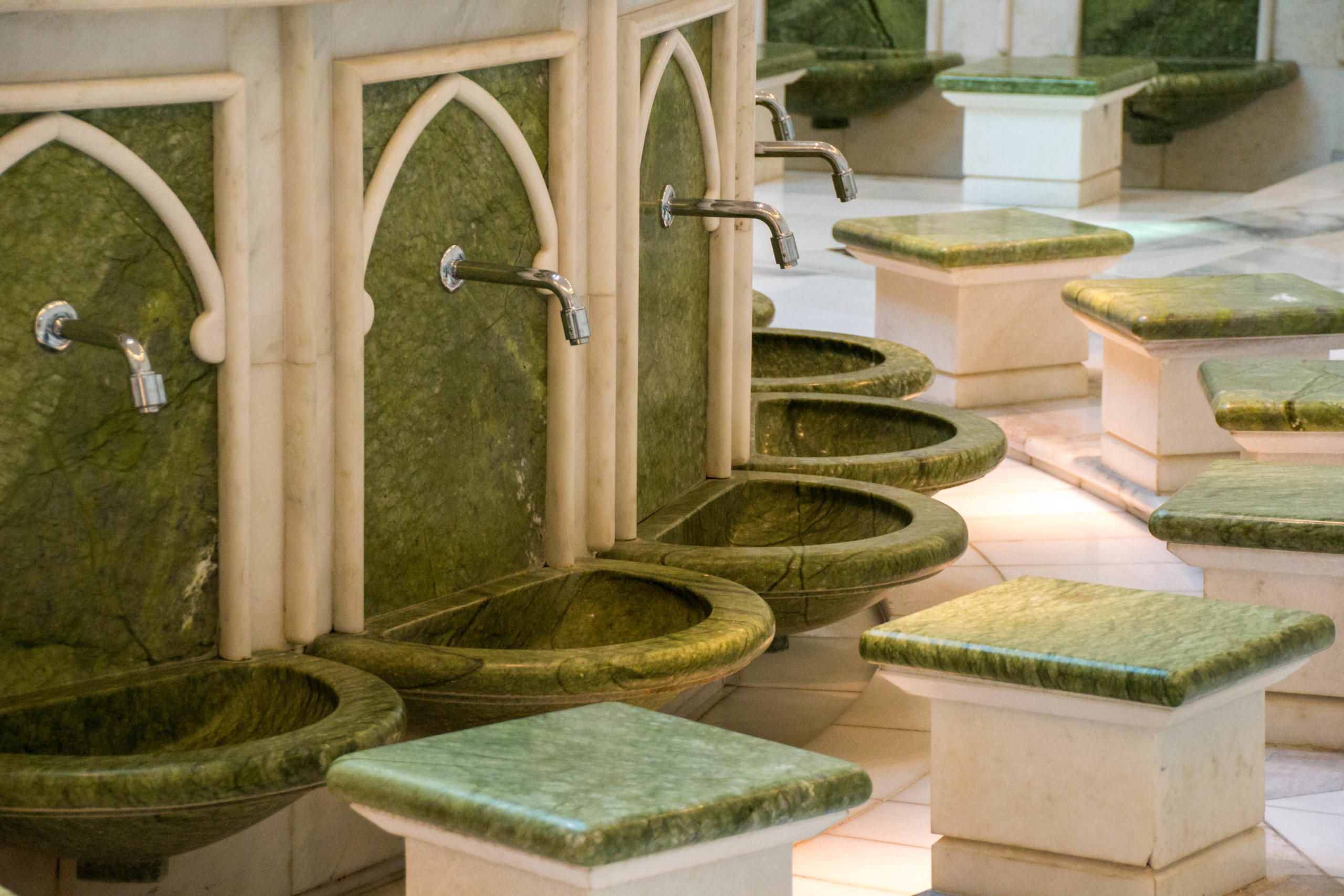Does the Exiting of Pus from the Skin Break Wudu’?
Hanafi Fiqh
Answered by Shaykh Yusuf Weltch
Question
I’m a chronic sufferer of waswasa. I suffer from various skin problems like acne and eczema. Sometimes a wound dries, and I go to shower or wudu. Afterward, I found that it had leaked small pus or liquid and could not tell if it had spread to wherever the water from the shower or wudhu spread or not if my clothes or any other body part/floor that touched the water from wudhu/shower najis?
Washing a body part with a small drop of pus that didn’t flow, if water flows over it (like droplets after shower) and spreads, does this water make everything in its way, najis?
Is using the tissue to clean the public toilet bowl enough to make it pure? If I sweat, won’t the najasa (if there is any) come back?
Answer
In the Name of Allah, the Most Merciful and Compassionate
Small Amount of Pus
For blood or pus to invalidate the wudu when exiting the body, it must exit with such strength that causes it or would cause it to flow. [Tahtawi/Shurunbulali, Hashiyat Maraqi al-Falah]
If one is unsure whether it flowed, especially one who suffers from misgivings (waswasa), the assumption is that it did not flow. Any doubts to the contrary are ignored until and unless one is reasonably sure otherwise. The reasonable surety is based on proof. [Ibid.]
Non-Flowing Pus is Pure
In addition to a small amount of pus not invalidating the wudu, it is also not considered impure. Even though a minority opinion states that non-flowing blood (or pus) that contacts a liquid makes the liquid impure – this cautious opinion is not taken by one who suffers from misgivings (waswasa) as a principle. [Ibn ‘Abidin, Radd al-Muhtar]
Thus, the majority opinion that non-flowing blood (or pus) is pure is to be taken in your case. If water comes in contact with it and moves to other places, the places and the water are all pure. [Tahtawi/Shurunbulali, Hashiyat Maraqi al-Falah]
Wiping the Public Toilet Seat
Whether public or private, the toilet seat is made out of a non-porous material (often porcelain). Non-porous materials can be purified by wiping them such that no traces of impurity are visible. This is obviously in the presence of impurity. If no impurity is visible, the seat is pure, and any doubts to the contrary require proof to affirm. [Ibid.]
Summary: Misgivings
Please read this regarding rulings and principles for dealing with misgivings (waswasa)
A Reader on OCD and Waswasa (Baseless Misgivings)
Hope this helps
Allah knows best.
[Shaykh] Yusuf Weltch
Checked and Approved by Shaykh Faraz Rabbani
Shaykh Yusuf Weltch is a teacher of Arabic, Islamic law, and spirituality. After accepting Islam in 2008, he then completed four years at the Darul Uloom seminary in New York where he studied Arabic and the traditional sciences. He then traveled to Tarim, Yemen, where he stayed for three years studying in Dar Al-Mustafa under some of the greatest scholars of our time, including Habib Umar Bin Hafiz, Habib Kadhim al-Saqqaf, and Shaykh Umar al-Khatib. In Tarim, Shaykh Yusuf completed the memorization of the Qur’an and studied beliefs, legal methodology, hadith methodology, Qur’anic exegesis, Islamic history, and a number of texts on spirituality. He joined the SeekersGuidance faculty in the summer of 2019.
